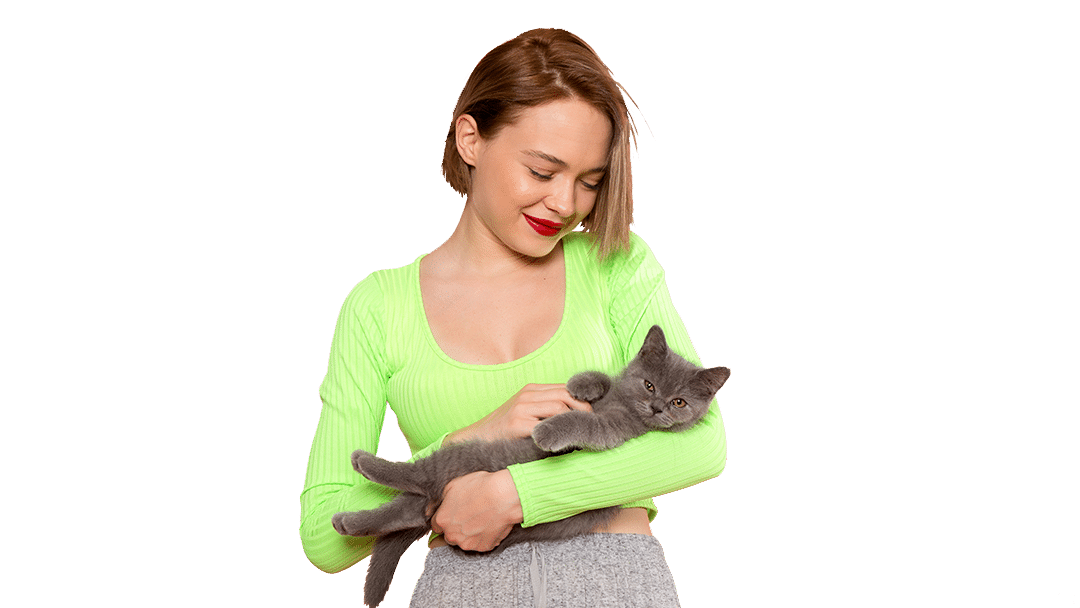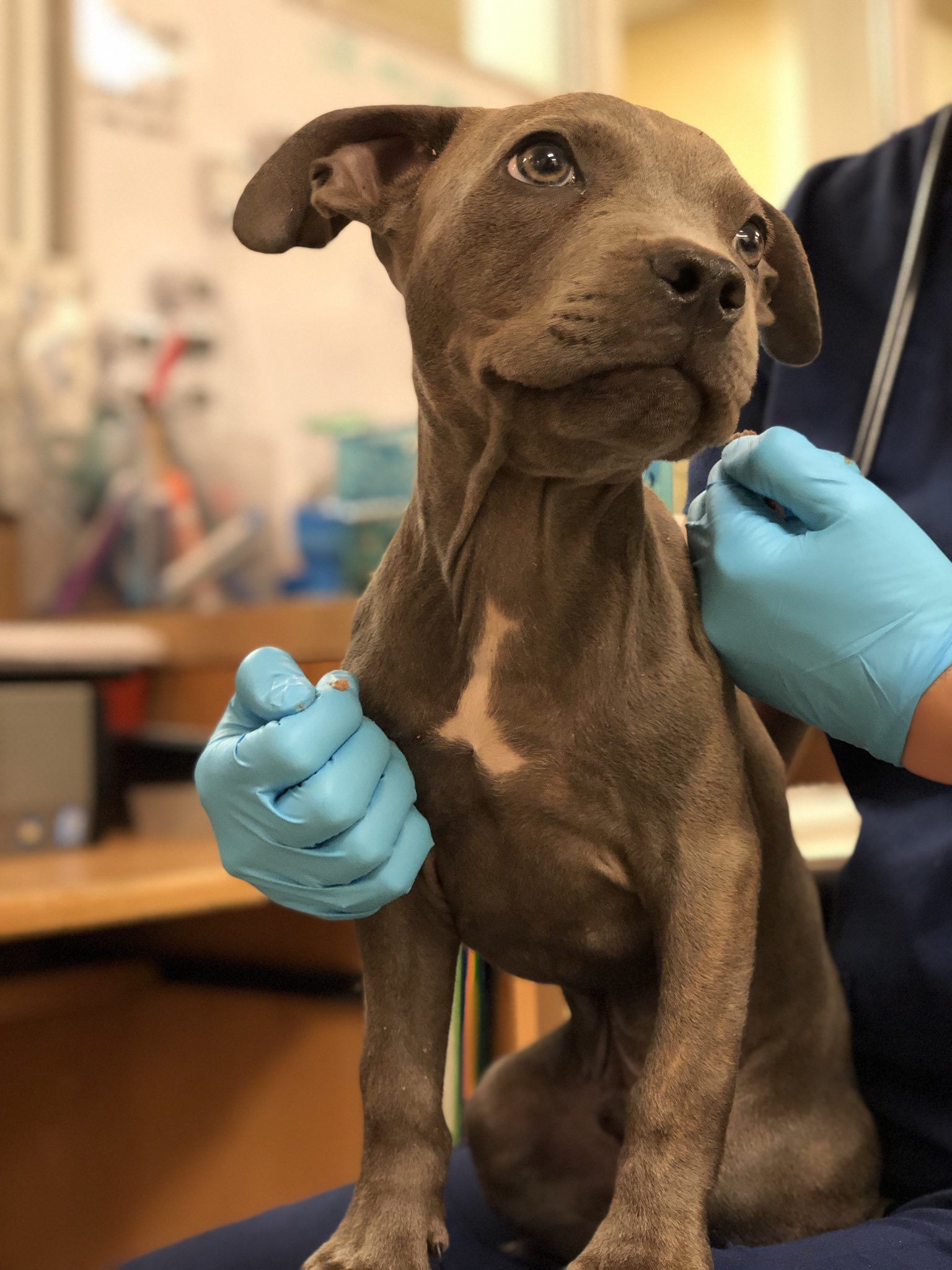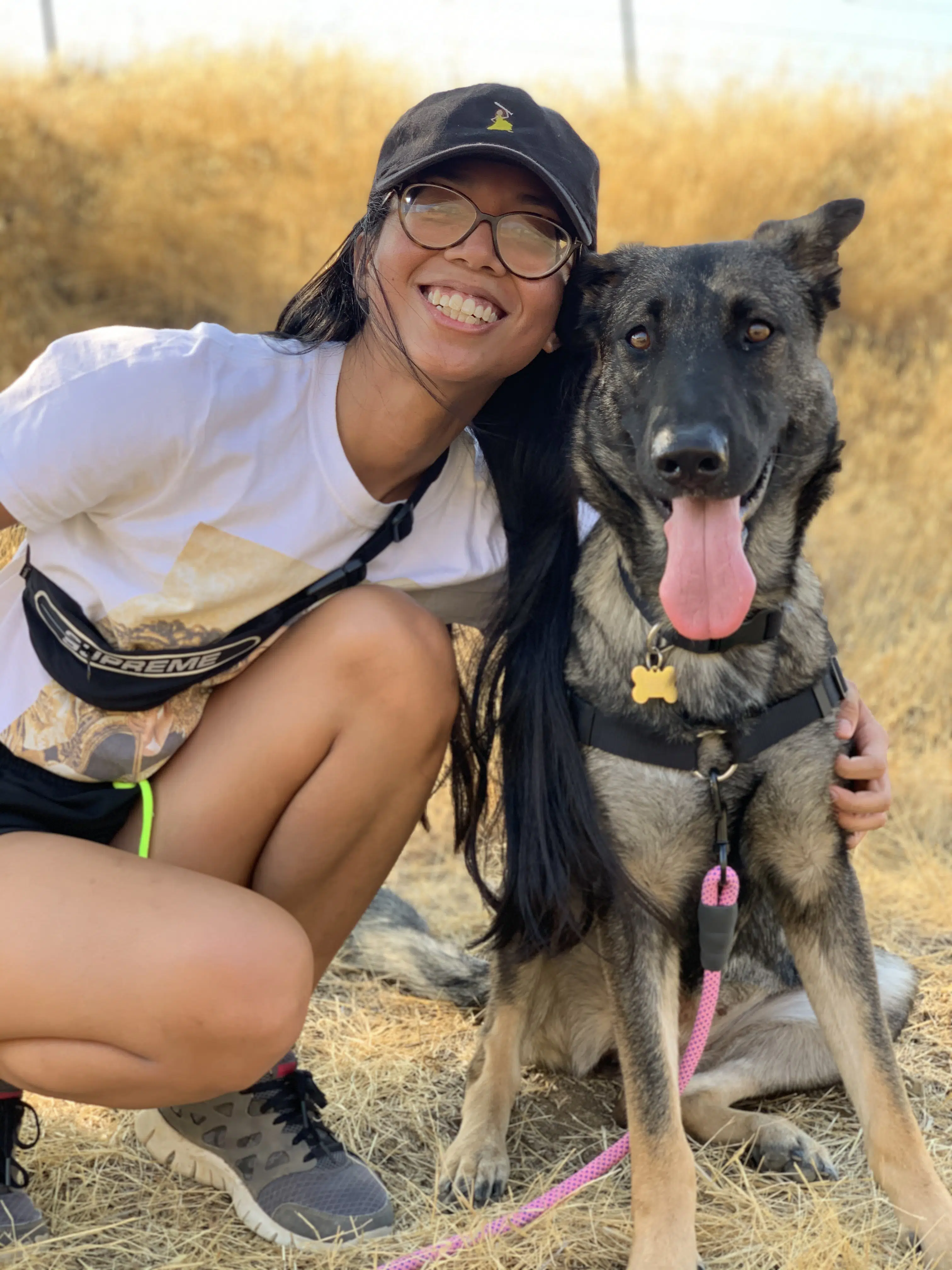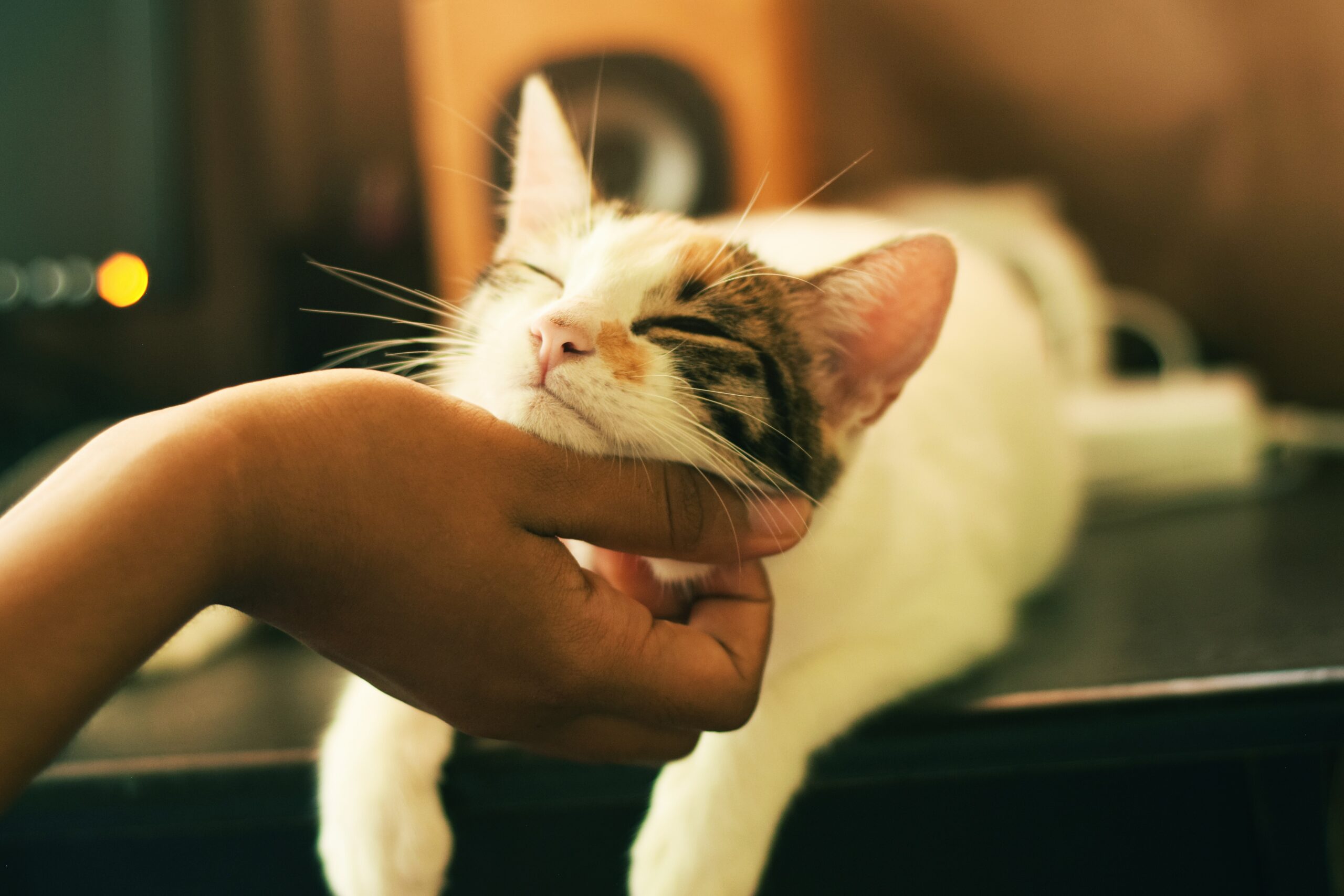Foster volunteers play a crucial role in animal wellness efforts, providing temporary space where dogs and cats can heal, grow, and receive personalized care. This nurturing environment not only prepares them for successful adoption but also alleviates crowding in shelters, allowing more animals to find their joyful futures.
Sign up for our foster volunteer orientation to become a Joybound foster family. During this free online orientation, you’ll learn about the realities and rewards of this unique volunteer role. This is a no-obligation session that you may take at any time.
“Love and care today gives them a bright future tomorrow.”
– Setareh, Joybound Foster Volunteer
Embracing the role of a foster volunteer is both straightforward and profoundly rewarding. By offering a safe haven, you contribute directly to an animal’s wellbeing, witnessing their transformation and resilience firsthand. This enriching experience brings joy and fulfillment, knowing you’ve made a tangible difference in a pet’s life. Plus, we support our foster families by providing all necessary supplies and comprehensive veterinary care, ensuring both you and your foster pet have everything needed for a successful experience.
Foster Orientation
Start your foster journey by signing up and watching our foster orientation video today!
Shelter to Service Fostering
Volunteer foster trainers put shelter dogs on the path to becoming assistance and support animals.
Volunteering Opportunities
Giving your time provides the support necessary to change the lives of people and pets.
Animals Currently in Need of Fosters
Here are just a handful of the Joybound dogs, cats, puppies, and kittens who are awaiting a stay in a foster home. Whether you’re a current foster volunteer or just interested in browsing, anyone is welcome to view our Foster department’s Trello board and see what animals are currently in need of a foster home. If you’re interested in bringing a foster animal home, sign up for our foster orientation today. Who knows? Maybe you’ll end up keeping them for good!
Types of Fostering
Joybound offers a range of foster opportunities to support animals in need, each varying in commitment and focus. For any of these, the first step is signing up and starting the foster orientation process.




General Fostering
The most common type of fostering involves providing temporary care for animals until they are ready for adoption. The duration can vary based on the animal’s needs; for instance, underage kittens or puppies often require fostering until they reach an appropriate age and weight for spay/neuter surgery, which is necessary before adoption. Adult animals recovering from medical procedures or those needing a break from the shelter environment may also benefit from general fostering. But we generally as for fostering to commit to a stay ranging between one and two weeks.
Regardless of the reason an animal needs fostering, every foster home makes a life-changing impact. Foster volunteering is one of the most flexible ways to get involved. Whether you’re opening your home to a litter of kittens, an older dog in need of a quiet retreat, or a cat who needs extra socialization, your support is invaluable in preparing them for the next step in their lives.
Nursing Moms
Fostering a mama dog or cat with her litter is a rewarding experience that typically lasts up to eight weeks, until the babies are ready for adoption. The mother does most of the work — feeding, cleaning, and caring for her young — while you provide a safe, quiet environment for the family to thrive. It’s a heartwarming opportunity to watch puppies or kittens grow, develop their personalities, and prepare for their future homes, all while giving a nurturing mom the comfort and security she needs.
SleepRovers
At Joybound, a “SleepRover” is a one-night (or two-night) foster experience for adult dogs who are available for adoption. SleepRovers currently begin on Thursday, with all dogs back at our Walnut Creek headquarters by noon on Saturday at the latest. Dogs eligible for SleepRovers are chosen based on their need for a break from the shelter, and the likelihood that they’ll be successful in a short-term foster.
Volunteer Foster Trainers (Service Dog Fostering)
Joybound’s Shelter to Service program is looking for special people to foster pre-evaluated shelter dogs in preparation for service and facility work. Before a Shelter to Service candidate meets their future handler, they must undergo exposure and foundational training with a volunteer foster trainer to master the required skills of crate training, alone-time behavior, walking appropriately on a loose leash, and potty training. Learn more to find out if becoming a volunteer foster trainer is right for you!
Questions?
Fostering is a wonderful opportunity to volunteer together as a family or care for a pet without a long-term adoption commitment. We encourage children to be involved in the fostering process, but the foster volunteer ultimately responsible for the animal’s care must be 16 years or older.
- “How long is the foster commitment?”
- “Can I adopt my foster animal?”
- “Exactly what supplies does Joybound provide?”
If you have questions about being a foster volunteer, feel free to read our foster FAQs, where we answer some of our most commonly-asked questions about fostering. Or contact our foster team at [email protected].
Foster FAQs
The most common animals that need foster are underage kittens or puppies without mom who are too small and too young to be spayed or neutered, which is required before they can be adopted.
We also get kittens and puppies that are still with their mom! The whole family needs foster until the babies are old enough and big enough to be separated from mom and go through spay/neuter surgery. Some families are small, with only a few babies; occasionally we get in moms with large litters up to 8!
There is also a need for foster volunteers to take on adult dogs or cats with medical needs that need to be attended to before they are ready for adoption.
And last but not least, we are frequently looking for foster volunteers who can take long-stay adult dogs who need a break from shelter life. These dogs are typically larger (50+lb.) and may have additional behavioral needs such as working on not jumping on people to greet them.
🏠 What types of training services and behavior support is available while fostering an animal from Joybound?
The Joybound foster staff and behavior staff are here to support you. If you ever have any questions or concerns about your foster animal’s behavior, don’t hesitate to reach out to the foster team. Our expert behavior team is available for additional support should the questions and concerns go beyond the scope of the foster staff’s knowledge.
Joybound exclusively uses Positive Reinforcement and Fear Free training and handling methods. We use treats, toys and attention to reward desired behaviors. We do not use punishment for undesired behaviors.
🏠 What types of medical services and support is available while fostering an animal from Joybound?
We have a fully-staffed team of medical professionals, including Veterinarians, who provide care for all Joybound animals. This includes support for overnight emergencies, should any occur after Joybound closes for the day.
If an animal requires medication during the foster period, the foster staff will train you on how to administer the medication. Medications are most typically oral or topical.
🏠 How long is the foster commitment?
We generally request that foster volunteers care for animals for one to two weeks. However, even a short weekend stay in a loving home can provide shelter animals a much needed break from the shelter.
Ideally foster animals could stay in foster homes until a forever home is found, but any length of stay provides animals with a break from shelter life and has a positive impact on their lives.
🏠 What supplies does Joybound provide?
Joybound will provide you with everything you need for fostering, including crates or a pen, a bed or blanket, food and bowls, treats, collar/harness, a leash, toys, poop bags, litter and litter box, and any necessary medications. For puppies, we provide potty training pads.
We are mainly looking for foster volunteers to provide their time and space for foster animals. If you are able to provide any physical items, your donations are greatly appreciated!
🏠 I work full-time. Can I still foster an animal?
Yes! Foster families are expected to provide basic, loving care to foster animals. If you expect to be away for most of the day or evening, please ensure dogs get a break for some exercise, food and water, and potty needs. Foster families all share a love of animals, but have a wide variety of jobs and careers!
🏠 I live in an apartment or rent a smaller space. Can I still foster an animal?
Yes! Many foster animals don’t actually need a large space or a yard. Some large dogs are happy to just hang out on a dog bed inside in between walks.
Please ensure your lease agreements and/or landlord permit you to foster a dog or cat before bringing one home.
🏠 I have other pets at home. Can I still foster a Joybound cat or dog?
Absolutely! Joybound requires that puppies or kittens under 5 months old be kept completely physically separate from resident animals for the full duration of the foster period. We can loan you ex-pens and play pens to help separate your spaces.
Joybound also recommends that any adult foster animals not come into contact with resident animals for one week. Your foster representative can advise about best practices on a case-by-case basis. We request that your animals are up-to-date on vaccinations and are spayed/neutered.
🏠 Are dogs crate trained or potty trained?
Joybound can never guarantee that a dog is crate trained or potty trained. It’s not uncommon for dogs to have accidents, especially during the first few days of being in a foster home due to the change in environment and routine.
🏠 How soon can I pick up my first foster animal(s)?
Once you’ve completed the Foster Volunteer Orientation and filled out all necessary forms and waivers, you are all set to pick-up your first foster animal. We get new animals looking for foster homes on an ongoing basis so finding a foster match can happen as soon as the day after everything is completed, but may be longer depending on Joybound shelter needs.
🏠 Can I adopt my foster animal?
We love when a foster home becomes a forever home for an animal! Foster families get first dibs on their foster animals. If you decide to keep your foster dog or cat, we require fosters to fill out our adoption application and return foster supplies previously supplied (beds, crates, pens, toys).
🏠 What if the foster animal isn’t working out in my home or I need to return early?
The foster team strives to find good match for both the foster animal and foster home. That being said, we understand that sometimes we don’t know if something is a good match until they are in the home and that circumstances may change at any time. The foster animal is always welcome to come back to Joybound if needed.
🏠 Can I bring my foster dog to the dog park?
No. For the safety of all animals, we ask that your foster dog be taken on leashed walks only. They are permitted to be off leash in an enclosed, private yard.
🏠 What is kennel cough? Will my dog get it?
Dogs coming from a shelter have likely been exposed to other dogs with kennel cough. We will always be transparent if we know the dog has been showing symptoms of kennel cough and/or are already on treatment for it.
The Bordetella vaccine helps protect dogs from getting kennel cough or can lessen the symptoms if they do get it. Healthy, adult dogs who are up-to-date on vaccinations are generally at lower risk, especially if the foster dog is kept completely physically separate from resident dogs. Please speak with your veterinarian about the potential risks to your resident animals.
🏠 What does fostering a special needs animal entail?
Fosters play a critical role in caring for animals with special physical or medical needs that require extra love and compassion. The needs of each animal vary on a case-by-case basis, but typically, these animals require fosters who can administer medications, manage more frequent vet visits, or in some cases, simply provide a quiet and calm environment to recover from surgery.
🏠 How does fostering a dog for the Shelter to Service program differ from other foster commitments?
The primary difference is that you will play a vital role in preparing an animal to provide support for someone with traumatic brain injury, anxiety, or depression. Shelter to Service foster trainers will be asked to closely monitor behavioral characteristics required of dogs who meet the criteria to pass the training program.
We request a minimum of 15 weeks for service dog foster families. No special skills or expertise are required to foster a dog for the Shelter to Service program.






